Unfortunately, there is no magic cure for allergy. Often, the goal is not to cure the disease, but to manage the symptoms so that the quality of life for your pet is not impacted to such a degree that they suffer. This can be best achieved through a multi-modal treatment approach which involves combining different treatment options.
Managing allergy can be achieved through:
- Regular flea treatment
- Itch blocking medication
- Topical therapy
- Ear cleaners that promote long-term aural hygiene
- A low allergen diet
- Anti-dust environmental sprays
- Immunotherapy
Topical Therapy
When your pet suffers, it affects the whole family. The good news is that allergy can be treated and your pet's symptoms managed.
Topical therapy is a very useful to way to help manage a variety of the symptoms associated with allergy. Symptoms such as itching, poor skin barrier function and bacterial / fungal skin and ear issues can be managed with:
- Shampoos
- Sprays & Foams
- Wipes
- Spot-On Treatments
- Ear Cleaners
Shampoo Therapy
Shampoo therapy is an effective way of managing allergic skin. Shampooing pets with allergy can help remove allergens such as pollen and dust off of the coat. Some shampoos are also specially formulated to help target bacteria and yeast that cause skin infections, whilst others contain ingredients that can help soothe and moisturise itchy skin.
Antibacterial / Anti Fungal Shampoos
Allergic pets have an imbalance of harmful microflora on their skin and this makes them more prone to developing skin infections. Itching can cause excess licking and scratching which can also cause infections.
For many allergic dogs, good skin hygiene through the routine use of medicated topical antiseptic products, is another key part of achieving long-term control. Shampoos containing chlorhexidine are an effective way of managing the overgrowth of bacteria and yeast. Used regularly they can help restore a healthy balance of skin microflora.
For more information on our range of dermatologist recommended antibacterial / anti fungal shampoos click here
Soothing Shampoos
If your dog is allergic to pollens and dust, shampooing the coat regularly can help wash allergens and other irritants off of the skin. Using a soothing shampoo that contains emollient ingredients such as lanolin and betaine is an excellent way of removing allergens. They also help soothe and moisturise itchy, red and irritated skin.
Allergic animals also have a defective skin barrier which leads to dry skin. Shampoos that moisturise the skin can help strengthen and restore the skin barrier which can help reduce symptoms associated with allergy.
For more information on our dermatologist recommended range of soothing shampoos click here
Foams & Sprays
To help manage your pet's allergy effectively, it is important that you can apply the recommended treatment properly. Although shampooing allergic pets is recommended, it may be difficult or impractical to wet bathe your pet.
Luckily, many of the antibacterial / anti fungal and soothing shampoos are also available as easy-to-use foams or sprays.
These are leave-on preparations that require no water and are ideal for localised skin areas where perhaps a full bath may not be necessary.
For more information on our range of dermatologist recommended topical sprays and foams click here
Medicated Wipes
Many allergic dogs lick their paws which can cause secondary bacterial and fungal issues in between the digits and can cause saliva staining on the hair around the feet. Some breeds of dog with skin and facial folds are also prone to getting secondary issues on the skin between the folds as they are warm and moist, a perfect breeding ground for micro-organisms.
Using a medicated wipe to regularly clean the paws and the skin folds is an excellent way of keeping the skin in these areas healthy. Wipes are easy to use and can be applied daily or as frequently as needed to maintain healthy skin.
For more information on our dermatologist recommended medicated wipes click here
Spot-On Therapy
Another way to help reduce the symptoms of allergy and something that can be used alongside shampoos etc is Spot-On therapy.
These are specially formulated solutions that can be applied weekly onto a small area of skin. Containing natural essential oils and essential fatty acids, Spot-On treatments are a great way of promoting long-term skin health and they can help control skin microflora, restore skin barrier function and reduce itching.
Used alongside shampoo therapy they may help reduce the frequency of baths and can reduce the number of skin flare ups through the year. They are a great option on their own if applying other forms of topical therapy is particularly difficult.
For more information on our range of Spot-On therapies click here
Ear Cleaners
Many allergic dogs suffer with ear infections. In fact, in many allergic patients, the only symptom of their allergy is recurrent bacterial or fungal ear disease. This is because allergy causes inflammation of the ear canal and increased heat in the ear helps provide the perfect environment for bacteria and yeast to overgrow.
If your pet has a history of recurrent ear problems, the best way of ensuring long term ear health is to regularly clean them with an ear cleaner that targets bacteria and yeast.
Using an antibacterial or anti fungal cleanser 1-2 times per week is a great way of keeping ears clean and stopping bacteria and yeast from causing ear disease.
For more information on our dermatologist recommended ear cleaning range click here
Allergen Avoidance
80% of allergic pet's have an allergy to house dust mites.
Although house dust cannot be completely removed, there are things that can be done to help reduce the amount of dust in the environment.
Regular vacuuming of the home, especially areas your pet frequents often, along with regular washing of your pet's bedding can help reduce exposure to house dust.
There are also environmental sprays that can help bind and coat dust particles, meaning they cannot interact with your pet's skin in such a way as to cause an allergic reaction.
It is important to remember that although insecticidal sprays that kill dust mites are useful, animals are actually allergic to the dust mite faeces and proteins on the body of the mite, so although the dust mites may be dead, your pet can still be allergic to the faeces in the environment and the mite bodies.
For information on a novel environmental dust spray click here
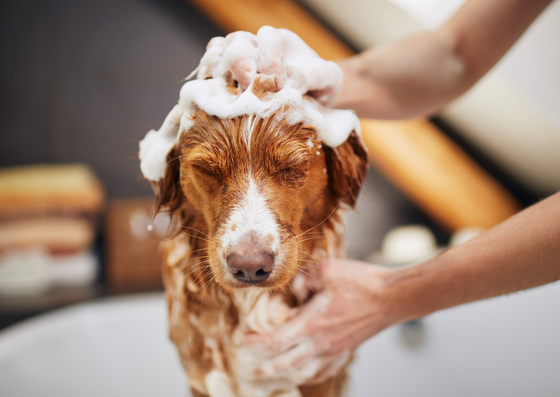
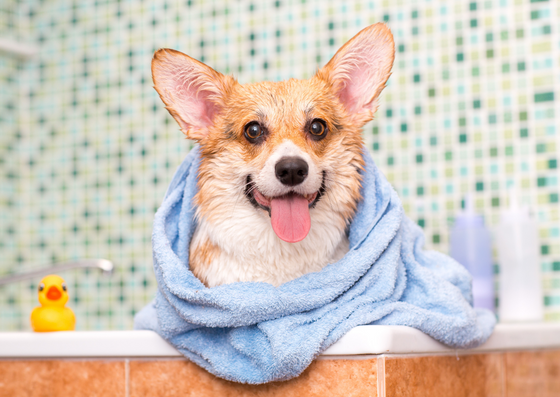
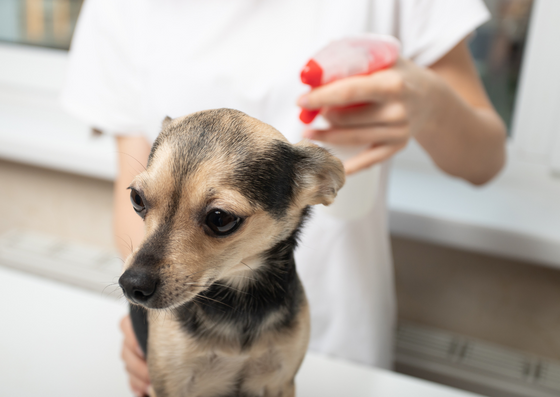
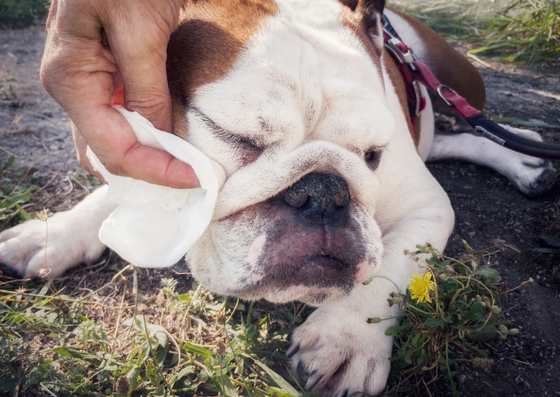
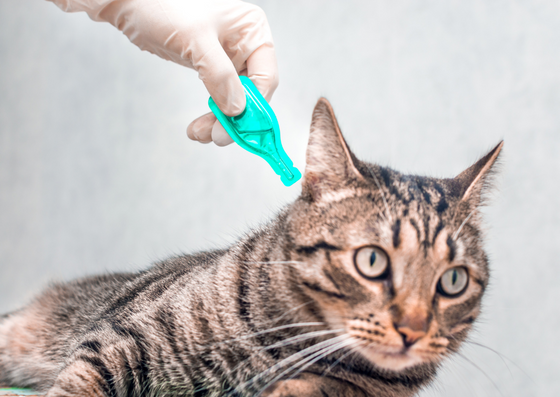
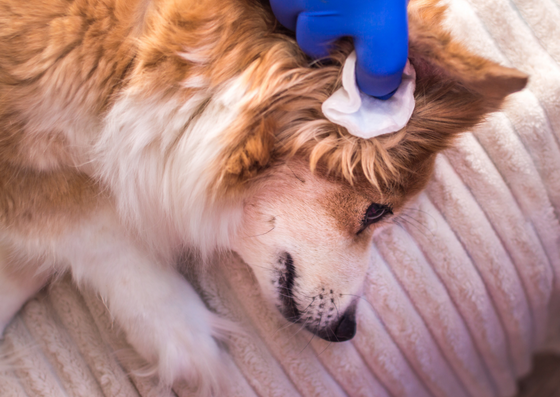
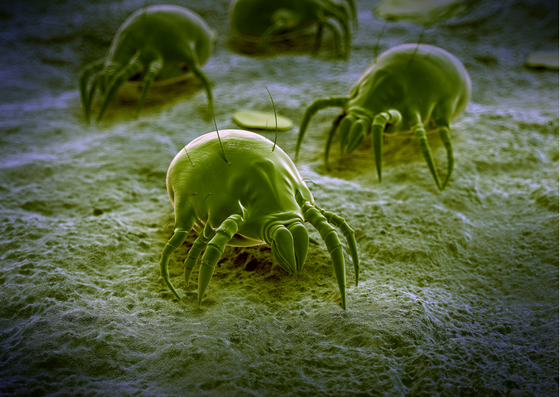
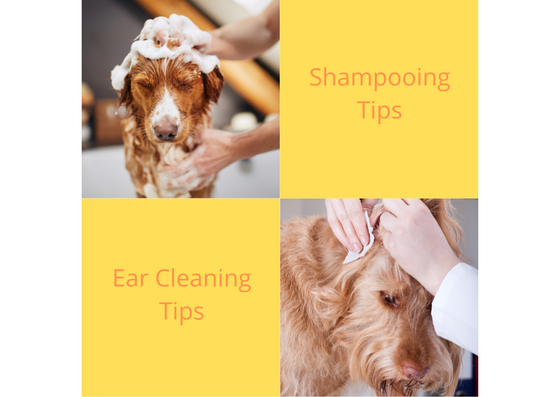
Skin Barrier Function
The skin barrier is the outermost layer of the skin. Amongst other things, it plays an important role in locking in moisture and keeping allergens, viruses and bacteria out.
Allergic animals are known to have a defective skin barrier meaning they are more prone to dry skin and secondary skin infections. Many of the symptoms associated with allergy such as itchy, dry, reddened skin and skin infections are directly related to poor skin barrier function.
Supporting the skin barrier in allergic animals is critical to managing the symptoms and reducing the number of skin flare ups.
There are different ways to support the skin barrier; topical products that can be applied to the skin, special foods or oral supplements. They all contain ingredients that aid the health of the skin, for example, essential fatty acids such as omega 3 and omega 6 and moisturising emollients.
Although skin barrier support products alone are unlikely to be sufficient to control the symptoms of skin allergies, they can play a key part in the successful long-term management when used in combination with other treatments.

Any Questions?
Visit our FAQ's section here
Site map Privacy police Terms of use
All trademarks are property of Nextmune Animal Health or a related company or a licensor unless otherwise noted.
@2022 Nextmune UK Ltd. All rights reserved.